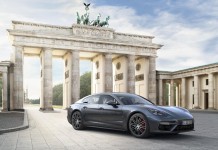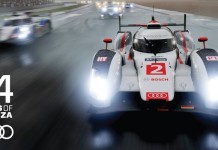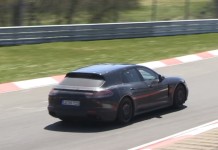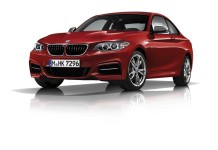Car manufacturers Audi, BMW, Daimler, Porsche and Volkswagen commonly support a modular connector system for electric vehicle charging. A globally integrated standard is to ensure that customers always have direct and easy access to the energy grid, independent of vehicle brand and supplier of electric energy. The company development directors have decided to conceptualize a modular connector system made from two parts: The core of the connector system has been submitted for standardization under the designation IEC 62196-2 Type 2 for single- up to three-phase charging with alternating current (AC). An extension for direct current (DC) is currently being developed.
All other OEMs are invited to participate in this development and establish a global standard.
The vehicle connector system was developed by reputable plug connector producers in close collaboration with the automotive industry, and will be employed on both the vehicle-side and the charging infrastructure. By means of its modular concept it not only fulfills all current requirements in terms of performance, security, as well as comfort, but is in addition well equipped for the future. The special design makes the charging connector suitable for charging with single- and three-phase alternating current. Additionally, with the extension component of the connector system, charging with direct current is to be realized by 2013. The OEMs aim for a short-term availability of vehicles and infrastructure for fast charging. Thus high DC current capacity and respectively very short charging times can be realized.
The modular connector system consisting of core and extension is applicable to all standard charging scenarios. The performance spectrum of the basic configuration ranges from single-phase charging at a regular domestic socket outlet to three-phase charging at private and public vehicle charging stations, which are currently being rolled-out. The extension can be used for charging at direct current charging stations, similar to already existing Japanese systems. Thus, the system is prepared for all future direct current charging categories up to fast charging and provides the opportunity for communication over CAN or PLC.
The safety of the system is guaranteed even in case of dirt and adverse weather conditions. A mechanical locking mechanism effectively prevents unintentional interruption of the charging process.
Charging at DC charging stations is a challenge for all national and international suppliers of electric energy and committees to also make a sustainable step towards a customer-oriented offering in this context. With DC charging the technical complexity within the car and the charging time can be reduced to an optimum level.
The German OEMs are jointly working on the next steps of standardization and are actively looking for a dialog with other OEMs, utility providers and network operators. With the standardization of the communication between vehicle and charging station in ISO/IEC 15118, innovative solutions for protection, increased comfort and billing of the charging process are to complement already realized constructive safety measures.
Comparable to the standard established for gasoline dispensers and compatible filler necks, a common, worldwide used charging connector and the appropriate data interface are an important milestone on the journey to a ubiquitous e-mobility. This is the only way customers receive the opportunity along the lines of the existing gas station network to “refuel” energy for their cars everywhere without additional adapters. Therefore, the setup of a functioning infrastructure is an essential requirement for the customer-friendly individual mobility of the future.








